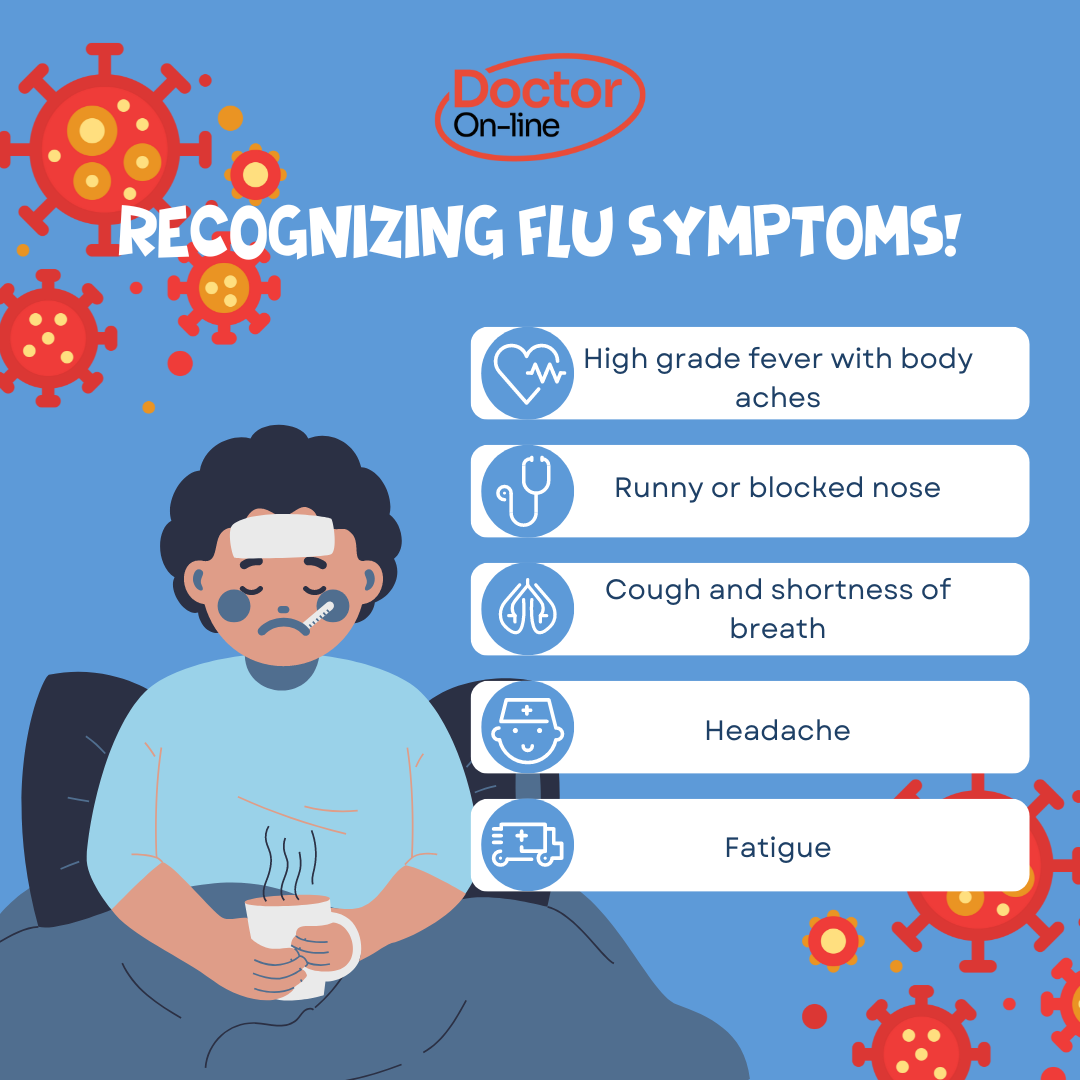Understanding Influenza (Flu) and Staying Protected : Your Comprehensive Guide to Flu Season
Influenza; commonly known as the flu, is a highly contagious viral infection caused by the influenza A or B virus strains. In Malaysia, flu cases occur throughout the year, with peaks typically observed from May to July and November to January. As flu season approaches, understanding the virus and taking preventive measures becomes crucial in safeguarding our health.
Recognizing Flu Symptoms:
The flu presents with a range of symptoms, including high-grade fever, respiratory issues such as cough and shortness of breath, a runny or blocked nose, sore throat, body aches, headache, and fatigue. Identifying these symptoms is vital for timely diagnosis and appropriate management.

How the Flu Spreads:
The flu primarily spreads through tiny droplets released when infected individuals cough, sneeze, or talk. These droplets can infect people nearby through their mouth or nose. Additionally, touching surfaces or objects contaminated with flu viruses and then touching the face can lead to infection, making hand hygiene essential in preventing transmission.
Contagious Period:
People infected with the flu can spread the virus even before showing symptoms and continue to do so while experiencing them. The most contagious period is typically within the first 3-4 days after symptoms appear. Some healthy adults can spread the virus one day before symptoms show up and up to five to seven days after falling sick. Young children and those with weakened immune systems may remain contagious for an extended period, underscoring the importance of avoiding close contact with vulnerable individuals.
Diagnosing the Flu and Treatment:
Prompt diagnosis is crucial, and testing methods like swab tests and blood tests can confirm the presence of the influenza virus. Antiviral medications, such as Tamiflu, are prescribed to combat the viral infection. Additionally, maintaining proper hydration and providing symptomatic relief for fever and cough are essential in managing the flu.
Complications of the Flu:
Untreated influenza can lead to severe complications like pneumonia, myocarditis, encephalitis, kidney failure, and liver failure. Seeking timely medical attention is vital to prevent these complications, especially for high-risk individuals.
Preventing Flu:
The most critical step in flu prevention is getting an annual flu vaccine. Research has shown that the flu vaccine not only reduces the risk of flu-related illnesses but also prevents serious complications that could lead to hospitalization or worse. Practicing good hand hygiene, following cough etiquette, wearing masks when necessary, and maintaining a safe distance from sick individuals are also crucial preventive measures in curbing the spread of the virus.
Vaccines Available in Malaysia:
In Malaysia, several vaccines are available to protect against influenza, including both egg-based and cell-based options. These vaccines work by introducing a weakened or inactivated form of the influenza virus into our bodies, stimulating our immune system to produce antibodies that protect us from the actual flu virus if encountered in the future.
—-
Understanding the nature of the flu and taking preventive measures is paramount in protecting ourselves and others during flu season. Getting an annual flu vaccine and practicing simple preventive actions can significantly reduce the spread of the flu virus and keep everyone healthy. Remember to seek medical attention promptly if you suspect you have the flu, especially if you are at higher risk of complications. Stay informed, stay protected, and prioritize your health during flu season! Together, we can create a healthier and safer community.

